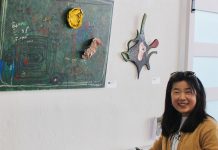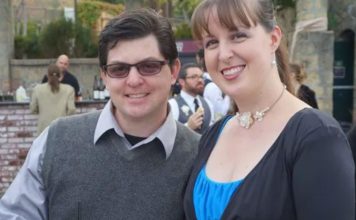On four Saturdays in April, I met with local folks at the Gilroy
Library to discuss Advance Health Care Directives. I brought
information and facilitated the discussion. Thirty-four Gilroyans
brought themselves, their experiences with the dying process, and
plans to make their final days as positive as possible.
On four Saturdays in April, I met with local folks at the Gilroy Library to discuss Advance Health Care Directives. I brought information and facilitated the discussion. Thirty-four Gilroyans brought themselves, their experiences with the dying process, and plans to make their final days as positive as possible.
The library staff and I were very pleased with the turnout. Saturday mornings are notoriously full of household chores and children’s sports. In spite of hectic schedules, every week six to 10 people showed up to discuss very sensitive and personal issues.
According to national statistics, one quarter of the population has filled out and filed their Advance Directives. I’m sure those numbers have risen a little since our nation watched Terri Schiavo die but they’re still pathetically low. I’d like to see the number of Gilroyans who have theirs done be higher than the national average.
What is an Advance Health Care Directive?
It’s a process. A process that begins with thinking about your beliefs, values, prognoses, experiences, and ethical views concerning health care. Then, talking with family members about the things you’d like or the things you don’t want. And, finally, writing down those ideas in some type of permanent document.
It’s a contract and a covenant. A properly signed and witnessed directive is about obeying the law and it’s also about relationships. You’re asking your family to honor your wishes regarding end-of-life care and they’re agreeing to comply.
It’s a gift you give your family. Medical professionals and volunteers have noticed that relatives caring for someone with an Advance Directive don’t have to spend their loved ones final days having family meetings and making difficult decisions. They’re able to focus on the person, say things that still need to be said, and begin the grieving process.
For those Gilroyans who haven’t filled out an Advance Directive, I can make some reasonable predictions for you based on end-of-life studies:
n Loved ones will probably make decisions for you based on what they would choose for themselves. If their values and end-of-life goals are the same as yours, this can work out well. If not, you may not die the way you lived.
n Loved ones will probably try to remember times when you made casual comments about health care. Again, sometimes that works out. Often, it doesn’t. We say different things on different days depending on the circumstance, what has just happened, and whom we’re talking to. One family member may remember you saying something that clashes with something you said to another.
n Loved ones who make the best choices they can will probably struggle with guilt once the funeral is over and the mourners are gone. Those odds are especially high when someone has to make the decision to remove any type of life support.
n Since California doesn’t have a medical hierarchy, if you don’t name an agent or surrogate decision maker, it’ll probably be: “the squeaky wheel gets the oil.” The dark joke in end-of-life groups is that the squeaky wheel is usually “the black sheep riding in on a white horse.” In other words, it’ll be the person who had the least to do with you while you were alive but wants to be your hero as you die.
According to the Gilroyans I met with in April, they got what they came for – enough detailed information to start their directives.
I, on the other hand, got more than I bargained for. Almost everyone who came had a story to share or a personal reason for wanting to take charge of their health planning.
A couple of the stories were comical and we laughed together about levels of familial dysfunction in stressful times.
We also got teary eyed when parents talked about burying their children or mates talked about losing their spouses.
Even though we never exchanged names or phone numbers, their stories bound me to them in ways that are hard to express. Their tales proved that the human spirit is resilient, quick to comfort others in the way that it found comfort and willing to talk about heartbreaking ordeals in the hopes that it’ll help someone else.
If you’d like to attend the next series of workshops on Advance Health Care Directives, consider yourself invited. Drop me an email and I’ll let you know where and when. Until then, stay healthy!












